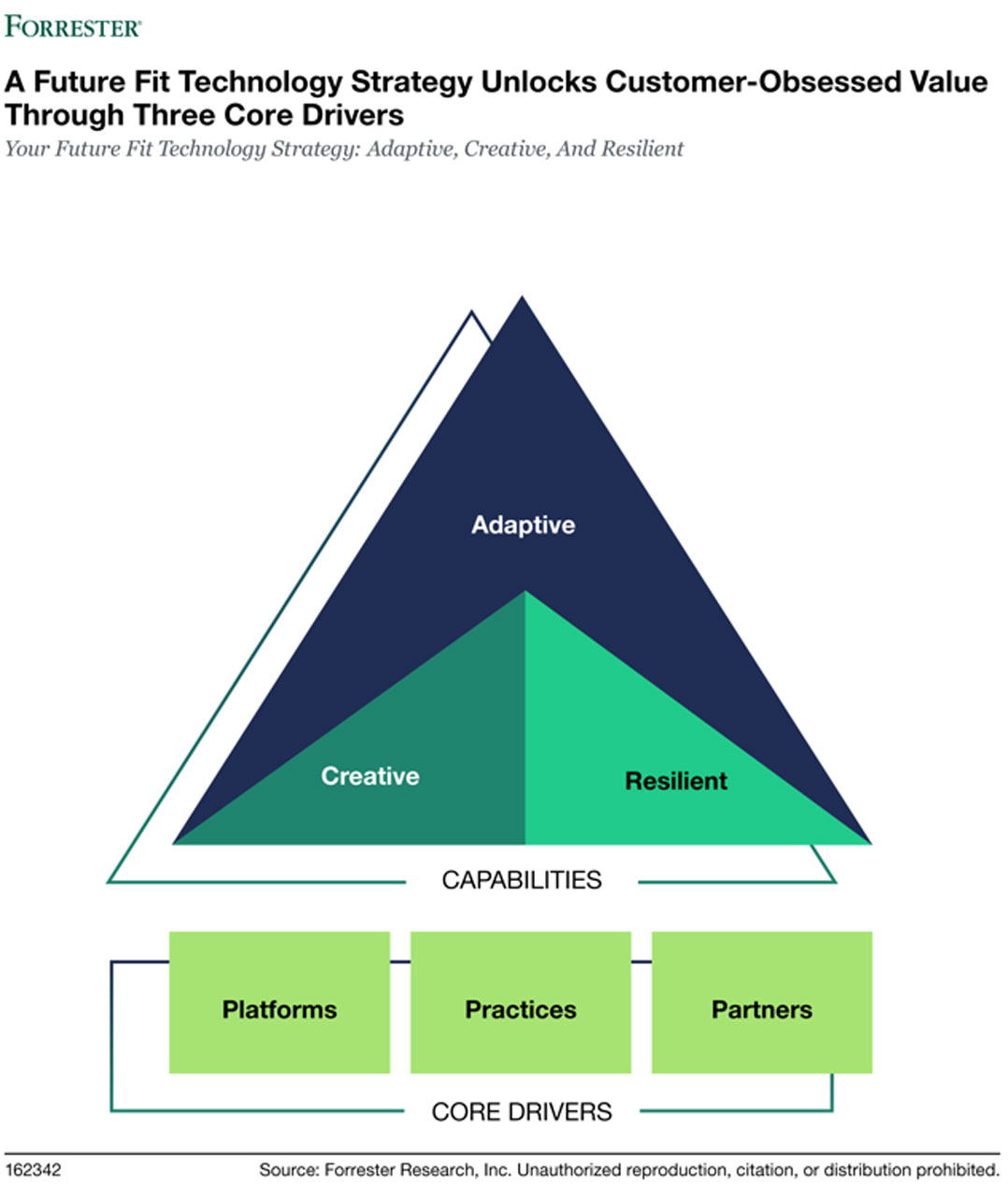 Many companies have, until now, dismissed systemic risks as “acts of God” and ignored them. The Covid-19 pandemic, however, has forced leaders to adopt a new attitude. To assist CIOs, Forrester has identified key technology trends which will help companies to prepare for, and adapt to, systemic risks such as pandemics and climate change as part of its Future Fit Technology Strategy.
Many companies have, until now, dismissed systemic risks as “acts of God” and ignored them. The Covid-19 pandemic, however, has forced leaders to adopt a new attitude. To assist CIOs, Forrester has identified key technology trends which will help companies to prepare for, and adapt to, systemic risks such as pandemics and climate change as part of its Future Fit Technology Strategy.
“In the past, companies looked at systemic risks and decided that the best course of action was to call their associated risk events “acts of God” and bet on them never happening. Why would a worldwide pandemic impact the company? It hasn’t happened in 100 years, so why would it happen now?” explains Renee Murphy, Forrester principal analyst serving risk and security professionals in the report, Future-Fit Businesses Are Preparing For Systemic Risks. “Many continuity programmes assumed that customers could keep interacting with the business, but these scenarios didn’t account for employees working from home, building closures, or customers’ reluctance to leave their homes. And firms weren’t using all the data they had at their disposal, despite years of investment in big data and advanced analytics.
Showcasing just how unprepared firms were for Covid risks, a Forrester review of Fortune 50 companies’ annual US Securities and Exchange Commission filings showed that just 50% of the SEC-listed companies even mentioned a global pandemic in their risk profile. Forrester warns that even though companies may recognise systemic risks and global threats, they remain unprepared for them.
The company also says the Covid pandemic will see regulators step in to enforce greater preparedness in the short term. Forrester estimates that within five years, the SEC will require filings for systemic risks in 10-K reports, while federal regulators will ask for climate risk plans. The central banks of Europe have already warned that they won’t be the banks of last resort when it comes to the impact of climate change.
Turning to tech to help manage your risk
Forrester analysts have honed in on three key emerging technologies which they believe can help CIOs and future-fit firms manage systemic risks:
- Privacy management. Under the broader category, Forrester believes that technologies like privacy management software, personal data portals and blockchain-based data access permission management will better equip companies to plan for and manage brand and regulatory risk stemming from data breaches.
- Third-party risk management. Forrester explains that even though many companies rely on third-party relationships to enable business processes, few companies have the requisite resources or processes to sufficiently manage third-party risk exposure. Third-party risk management platforms, risk monitoring and supply-chain mapping can monitor and assess risk to the enterprise by using the power of the ecosystem relationships between organisations.
- Climate risk analytics. The third trend on Forrester’s radar is climate risk analytics. Managing the existential risk of climate change is growing in importance and companies now face large loss events due to the increasing occurrence of extreme weather. As investors join the call for better climate change preparedness, more future-fit leaders will turn to this technology trend to help them manage risk to their operations.
Forrester also suggests CIOs should consider extending and revitalising their data lakes to capture and make sense of risk data from more sources as a means to stay on top of trends.
Helping leaders assess their preparedness based on an evidentiary approach
As lagging tech strategies clash with changes to customer expectations and priorities, as well as with the expectations of tech-empowered employees, leaders are forced to reassess their approach to technology. Customer obsession will provide the guiding star for leading CIOs, CTOs and chief data officers (CDOs) as they embrace what Forrester calls a Future Fit technology strategy in its report Your Future Fit Technology Strategy: Adaptive, Creative, Resilient.
Based on quantitative analysis of more than 10 000 consumer and employee survey responses, as well as qualitative analysis of numerous interviews with successful tech leaders, Forrester has fine-tuned its future-fit approach as: “A customer-obsessed approach to technology that enables a company to quickly reconfigure business structures and capabilities to meet future customer and employee needs with adaptivity, creativity and resilience.” This helps firms become adaptive, creative and resilient.
These three pillars are underpinned by core drivers of platforms, practices and partners, as illustrated below:
 To help CIO’s assess their preparedness, Forrester has developed an online Future Fit Assessment. This 10-minute survey will help IT leaders learn their Future Fit score as well as their individual scores for the three mental attributes of future fitness — curiosity, agility and risk assessment.
To help CIO’s assess their preparedness, Forrester has developed an online Future Fit Assessment. This 10-minute survey will help IT leaders learn their Future Fit score as well as their individual scores for the three mental attributes of future fitness — curiosity, agility and risk assessment.
About Forrester
For the past decade, Forrester has been delivering deep insights into how people interact with technology, how their behaviours and expectations change, and how companies should respond. For more information about how Forrester can work with your organisation to mitigate future systemic risk, please contact Joan Osterloh, Forrester’s authorised research partner for South Africa and East Africa.
- This promoted content was paid for by the party concerned




